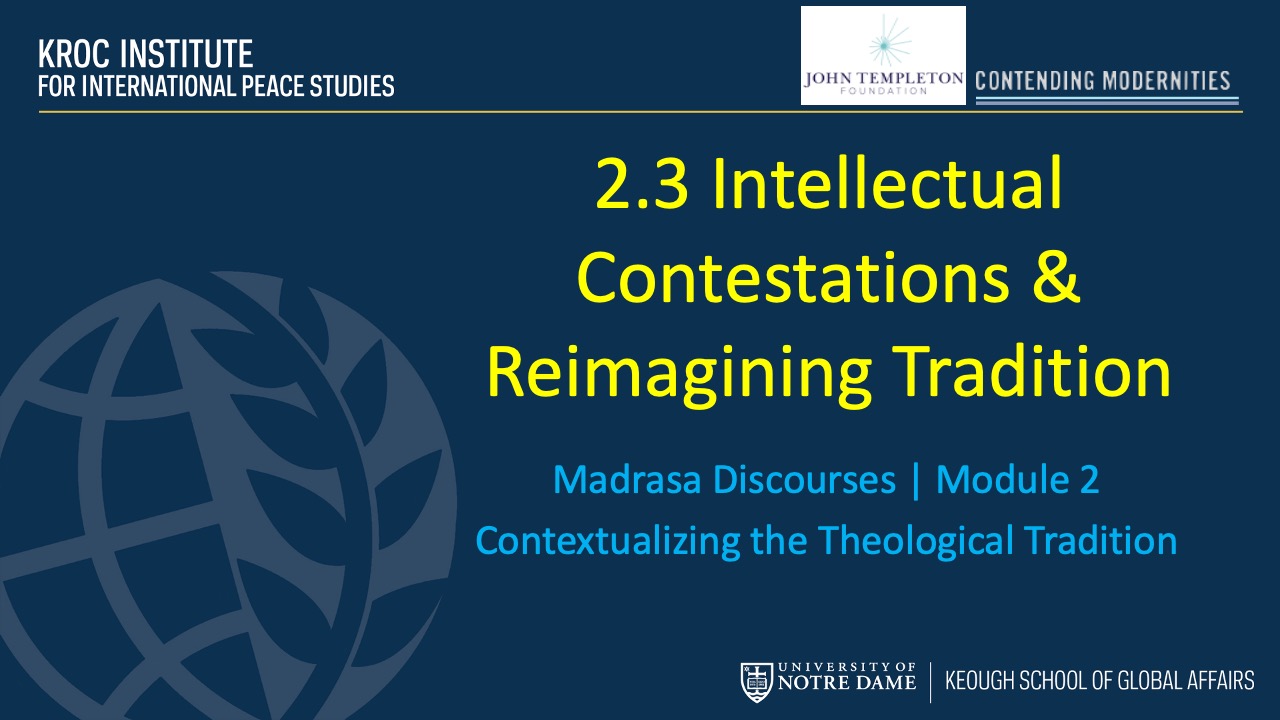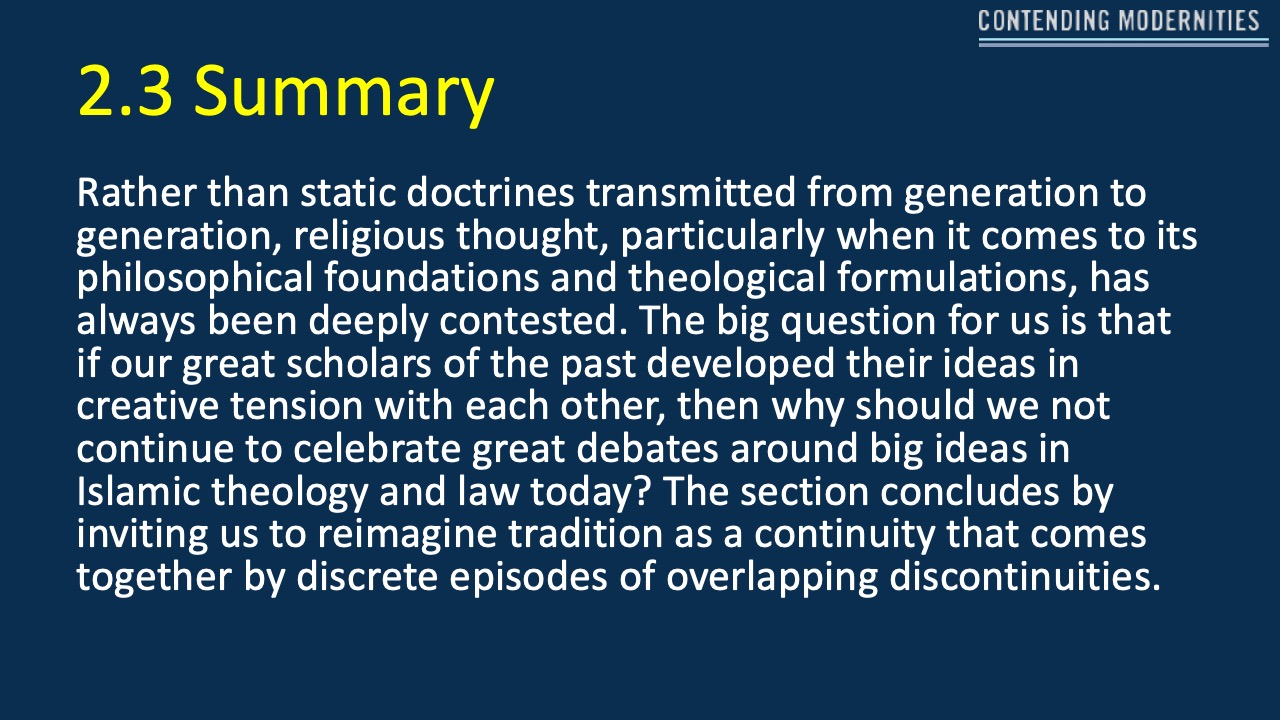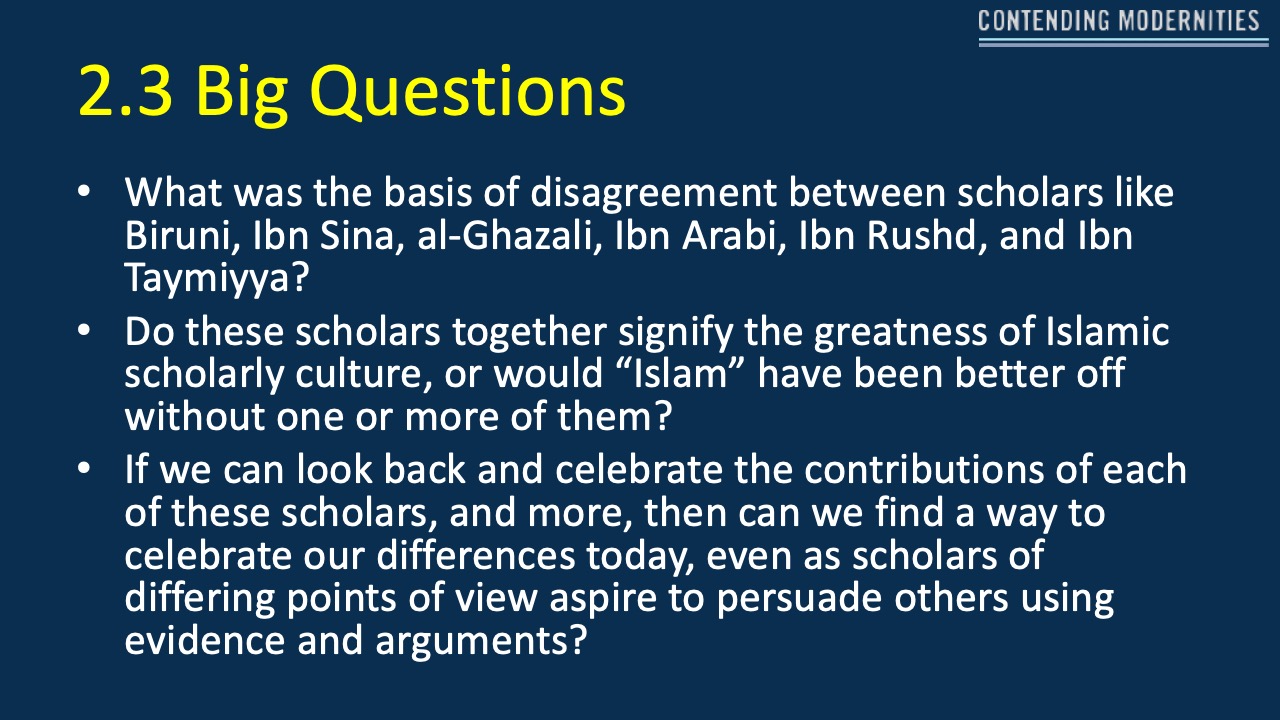In this section, students learn to view the tradition as more than a mere set of orthodox doctrines transmitted from generation to generation through chains of authentic transmission. Students will read on contending schools of Islamic thought, the positions of Ghazali, Ibn Taymiyya, and Ibn Khaldun, and consider a debate between al Biruni and Ibn Sina. Throughout the section we invite students to consider whether creativity and contestation remains important to Islamic theology.
Key terms:
- Orientalism
- Falsafa
- Metaphysics
Thumbnail: “Eid ul-Fitr, the feast marking the end of the fast of Ramadan,” Sudan. Photo Credit: UNAMID, 2012. CC BY-NC-ND 2.0.
Learning Materials:
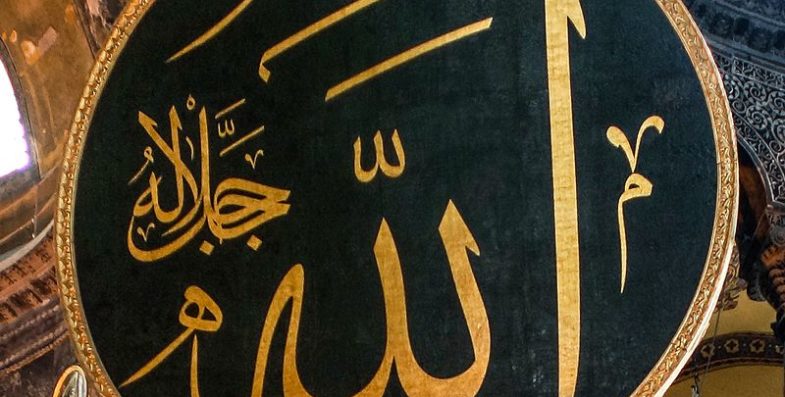
2.3.1 Reimagining Tradition
Professor of Islamic Studies Ebrahim Moosa proposes that tradition must be dynamic. (Adam Kliczek/"Hagia Sophia Medallion")
Read More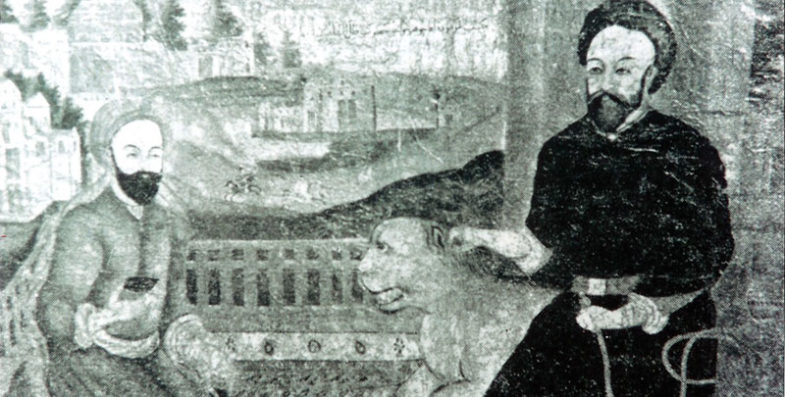
2.3.2 The Myth of Intellectual Decline
Aburrahman Mihrig, then a graduate student at Harvard University, contests Shaykh Hamza Yusuf's assumption of Islamic intellectual decline. (Ashrf1979/"Bahāʾ al-dīn al-ʿĀmilī")
Read More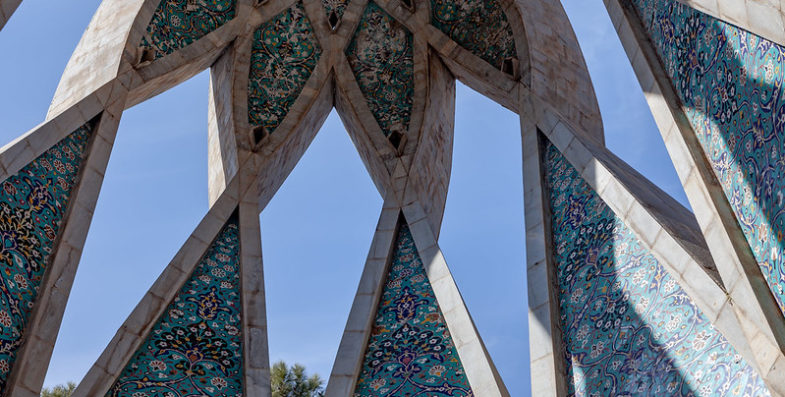
2.3.3 Islamic Theology
This article from Islamic Philosophy Online presents an overview of the Islamic theological tradition and its contending schools of thought. (Ninara/"Mausoleum of Omar Khayyam")
Read More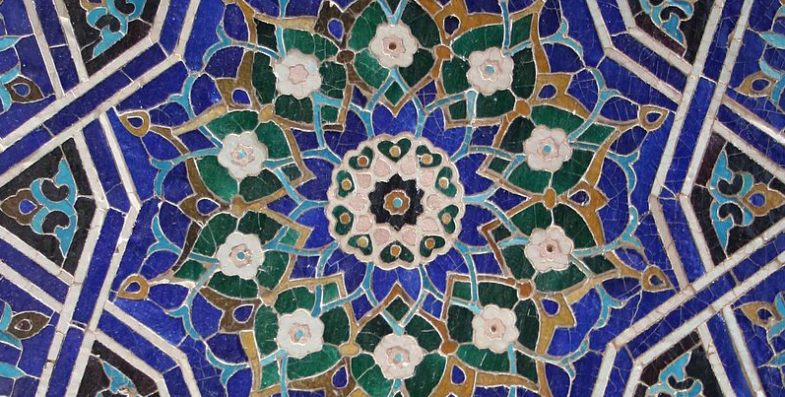
2.3.4 The Silent Theology of Islamic Art
This Renovatio article suggests that Islam is best known not through books or discursive arguments, but rather through aesthetics. (InfoCan/"Shah-i Zinda Tuman Aqa")
Read More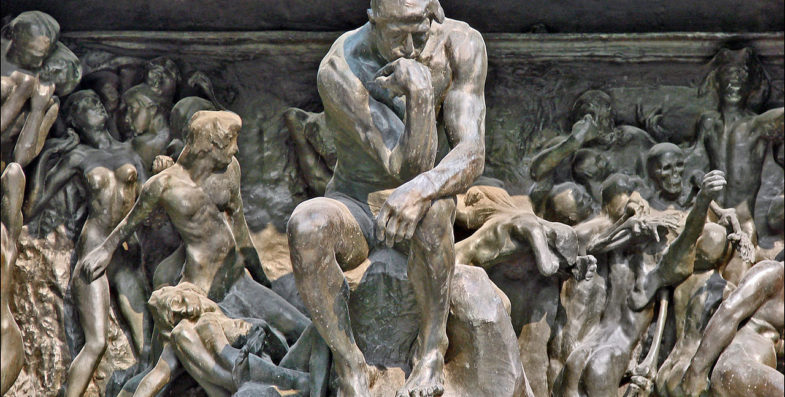
2.3.5 Intellectual Contestations Video
Madrasa Discourses principal investigator Ebrahim Moosa and lead faculty Mahan Mirza discuss Ghazali and his place within the wider tradition. (Jean-Pierre Dalbéra/"Le Penseur")
Read More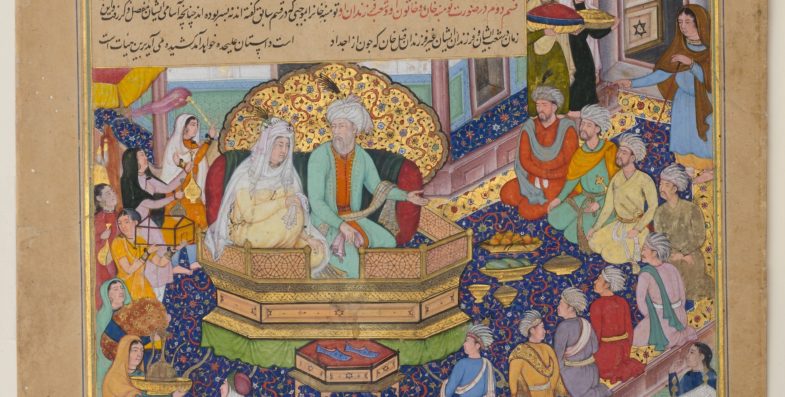
2.3.6 Hierarchy and Islamic Ethics
What does it mean for Islam if only a male elite can achieve ethical refinement, at the expense of non male elites? (The Met/"Tumanba Khan, His Wife, and His Nine Sons")
Read More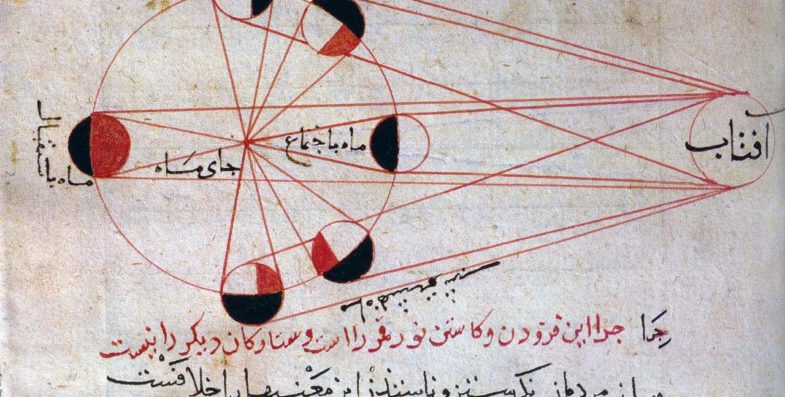
2.3.7 Astronomy and Astrology
This article from the Metropolitan Museum of Art (The Met) in New York City shows how science can be studied in relation to many other disciplines. (Laurascudder/"Kitab al-Tafhim")
Read More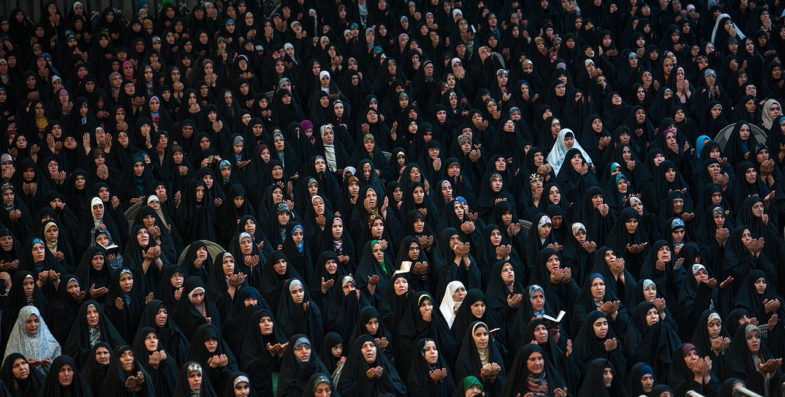
2.3.8 Thinking About Tradition (Supplemental)
One of the most sophisticated theorizations of tradition is found in the works of Professor Talal Asad. (Sonia Sevilla/"Imam Ali Shrine")
Read More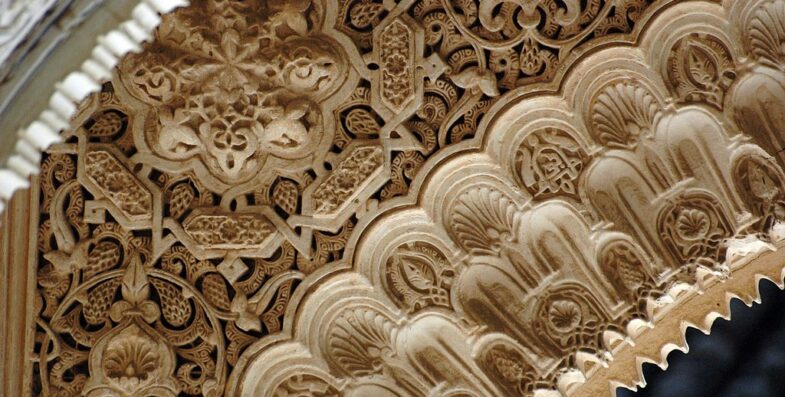
2.3.9 Critiques in the Study of Religion (Supplemental)
Religion isn’t a native term used by ordinary religious people, it is a term created by scholars. (Remedios/"Archway at the Alhambra Palace")
Read More

